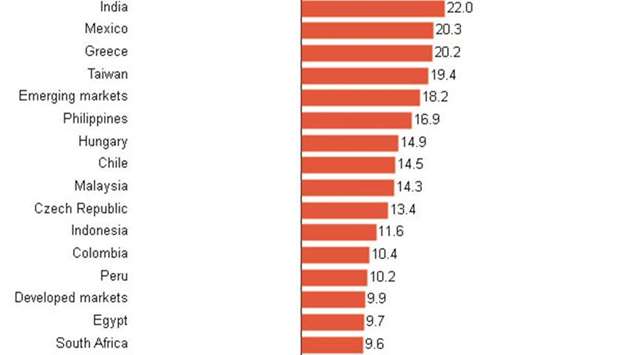Broader emerging markets, however, are in good shape and inflows to emerging debt funds topped $2.3bn in the past week — the 19th straight week of inflows.
Emerging equity funds took in $1.2bn, Bank of America Merrill Lynch data showed.
Elsewhere, the Czech crown jumped 0.4% to a new three-year high versus the euro, with higher-than-expected May inflation data pointing to possible monetary tightening later this year, and contrasting with the European Central Bank’s (ECB’s) dovish stance.
Czech bond yields rose across the curve, with five-year yields hitting 10-day highs.
There was little impact on emerging markets from the British election but Rabobank advised positioning for central European currencies to firm against the weaker pound.
“The Czech crown has the biggest potential amongst its peers to appreciate against sterling.
Even if the political situation stabilises...downside pressure on sterling/crown is likely to prevail over the mid-term horizon given that the outlook for the Czech economy is relatively positive,” Rabobank told clients.
Elsewhere, investors are carefully watching developments in Venezuela, which missed a $30mn interest payment to the CAF development bank, the development bank of Latin America, days after missing a $1bn repayment to Russia.
The Ivory Coast, meanwhile, issued the first euro-denominated bond sold by any sub-Saharan African country besides South Africa.

